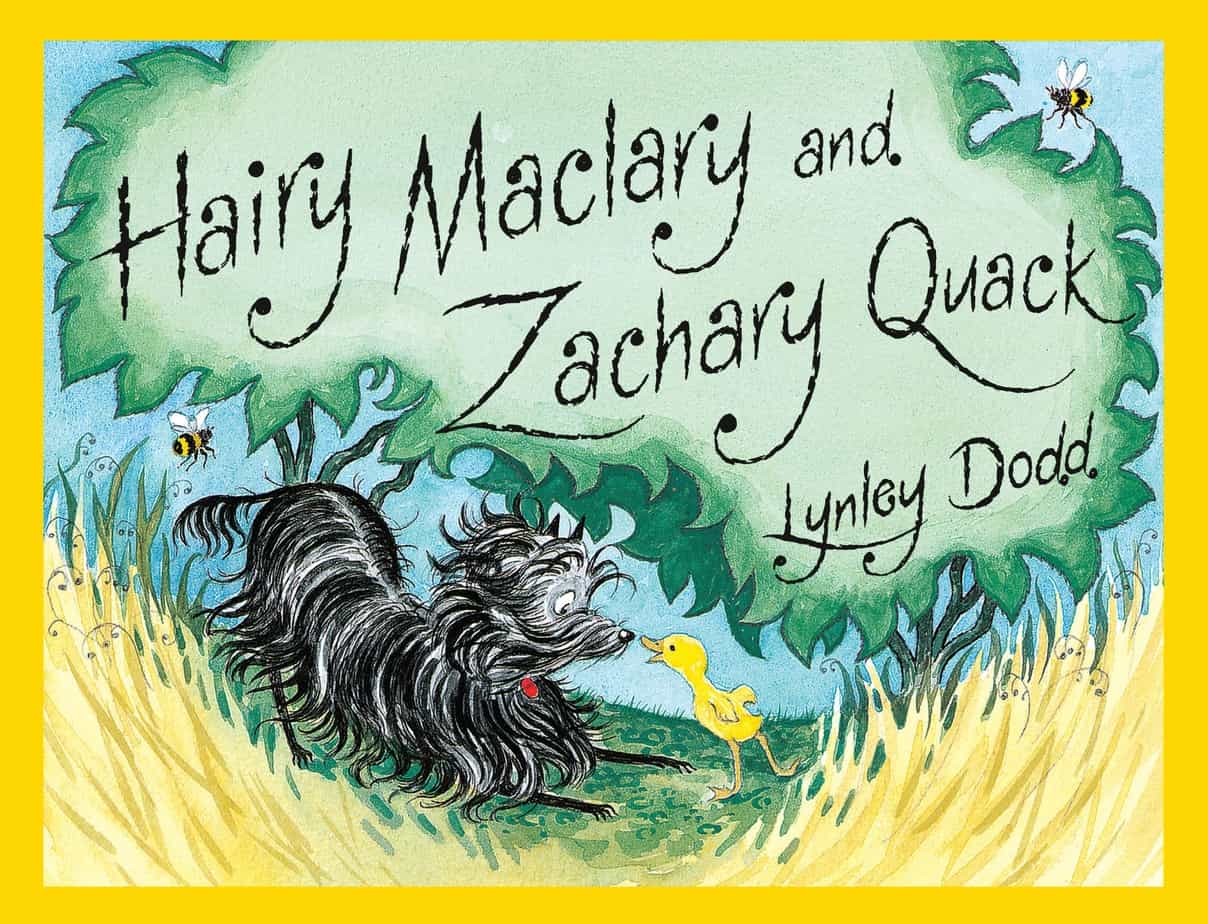Hairy Maclary and Zachary Quack (1999) is a picture book written and illustrated by New Zealand storyteller Lynley Dodd. A duckling saves Hairy’s life. Although many of the Hairy Maclary stories are written with the carnivalesque picture book structure, this one is not. Hairy is not on a fun adventure this time; it is summer, and he wants to sleep. He almost loses his life! Plots like this require the classic Odyssean mythical structure.
STORY STRUCTURE OF HAIRY MACLARY AND ZACHARY QUACK
PARATEXT
Hairy Maclary “dozily dreamed as he lay on his back when pittery pattery, skittery scattery, ZIP around the corner came Zachary Quack.” Little Zach presents quite a nuisance, but their friendship wins out in the end.
MARKETING COPY
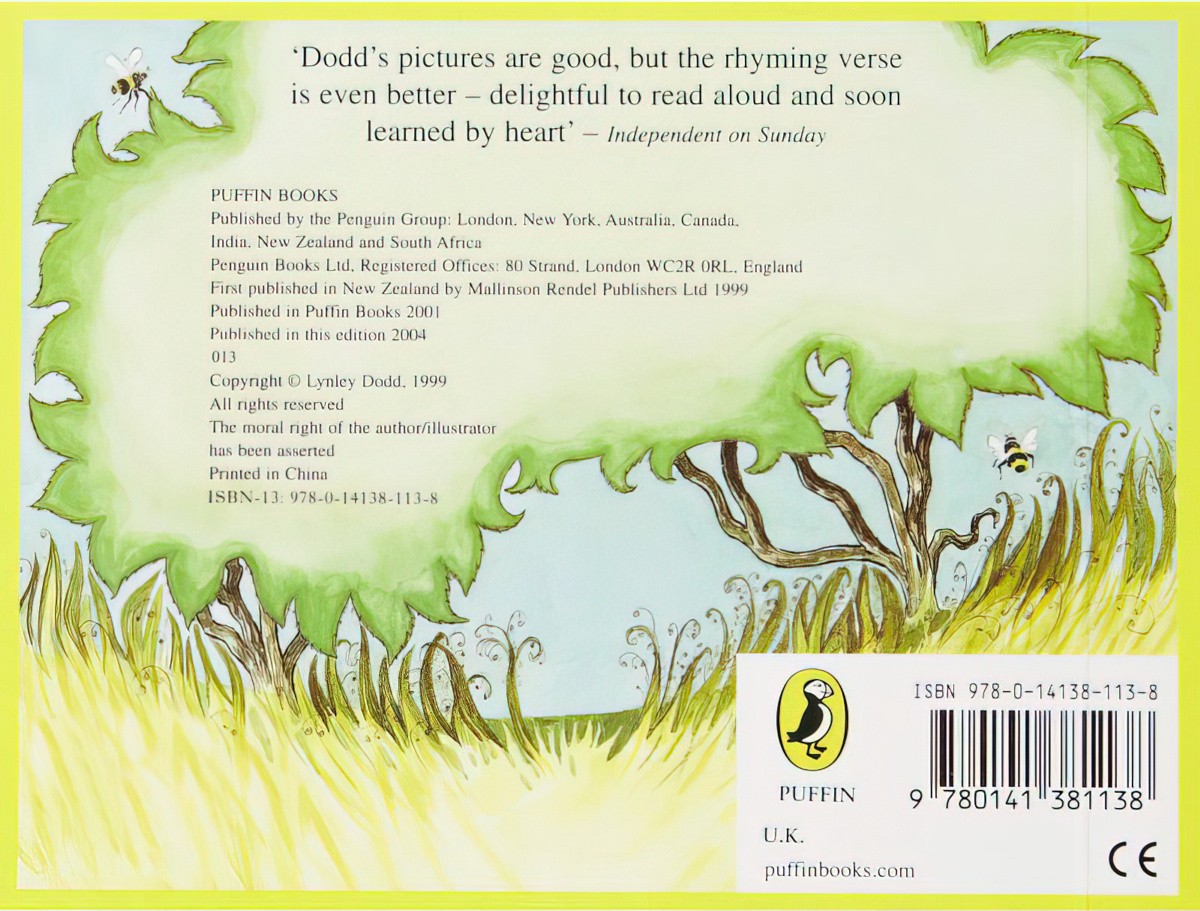
SHORTCOMING
Hairy Maclary is not suited for life in the water and although he can dog paddle, he doesn’t understand how ponds work.
DESIRE
Hairy wants to sleep under a hydrangea bush. I feel like Lynley Dodd puts a lot of thought into her foliage. The purple complements the yellow of the duckling, and also of the grass. In this story, it must be summer. The usually green grass of New Zealand has dried out.
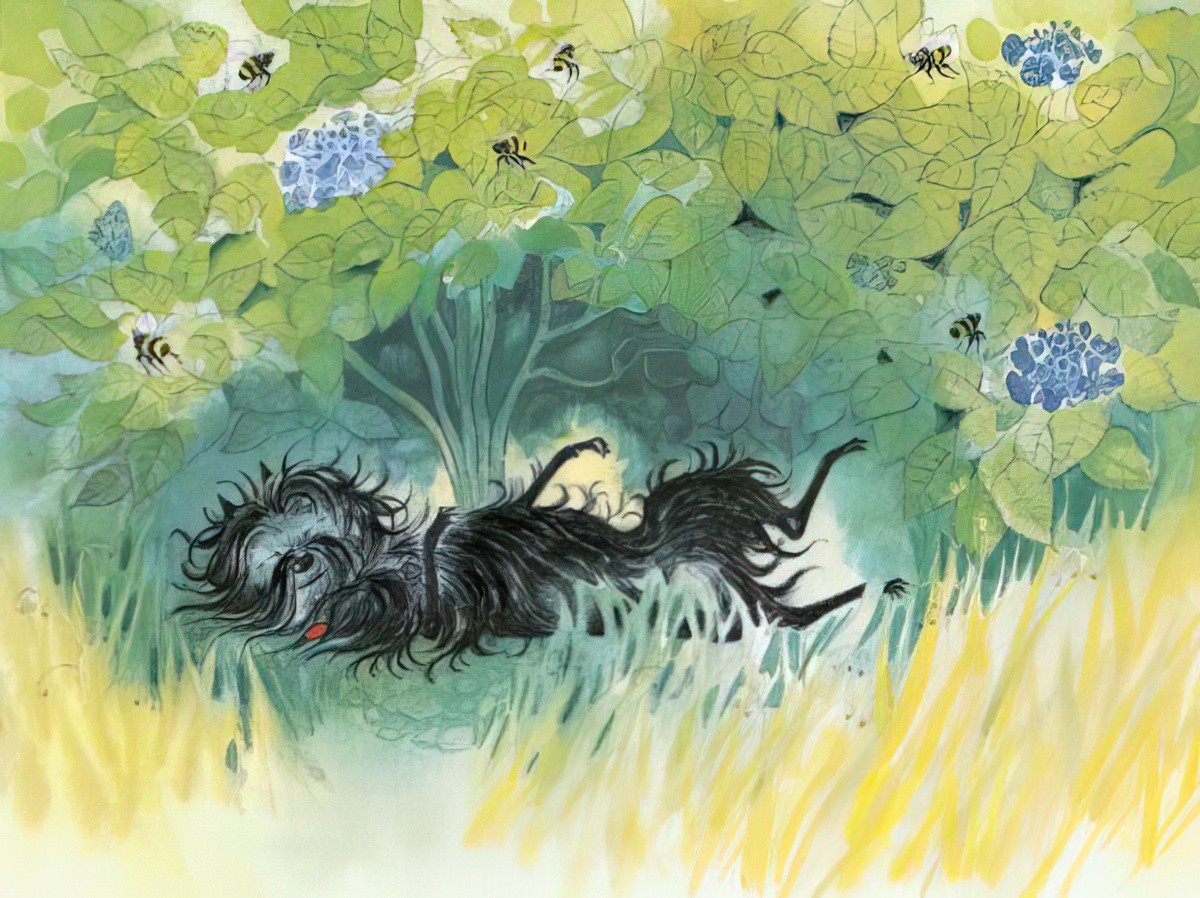
This desire to sleep contrasts with the Hairy we’ve seen previously, in which he is full of mischief, craving adventure. Perhaps Hairy is getting old?
Dogs tend to spend as much as half of their days asleep, 30 percent awake but relaxing, and just 20 percent being active. Older dogs require more sleep just because they tire out more easily and, as a general rule, bigger breeds also spend more time dozing.
American Kennel Club
Or maybe it’s just a really hot day. New Zealand’s North Island doesn’t get that hot, but days in the high 20s do become uncomfortably muggy.
OPPONENT
Zachary Quack is a duckling for a reason. The youngest readers won’t know the trope of the duckling who sees a creature and follows it around believing it to be its mother. This is not to say Zachary thinks Hairy is his mother, but ducks who follow are common in pop culture, and in phrases such as, “Readers are like ducklings.” This advice is commonly issued to writers, who are advised to introduce the ‘main character’ first, because readers tend to assume that’s the character they are supposed to be rooting for.
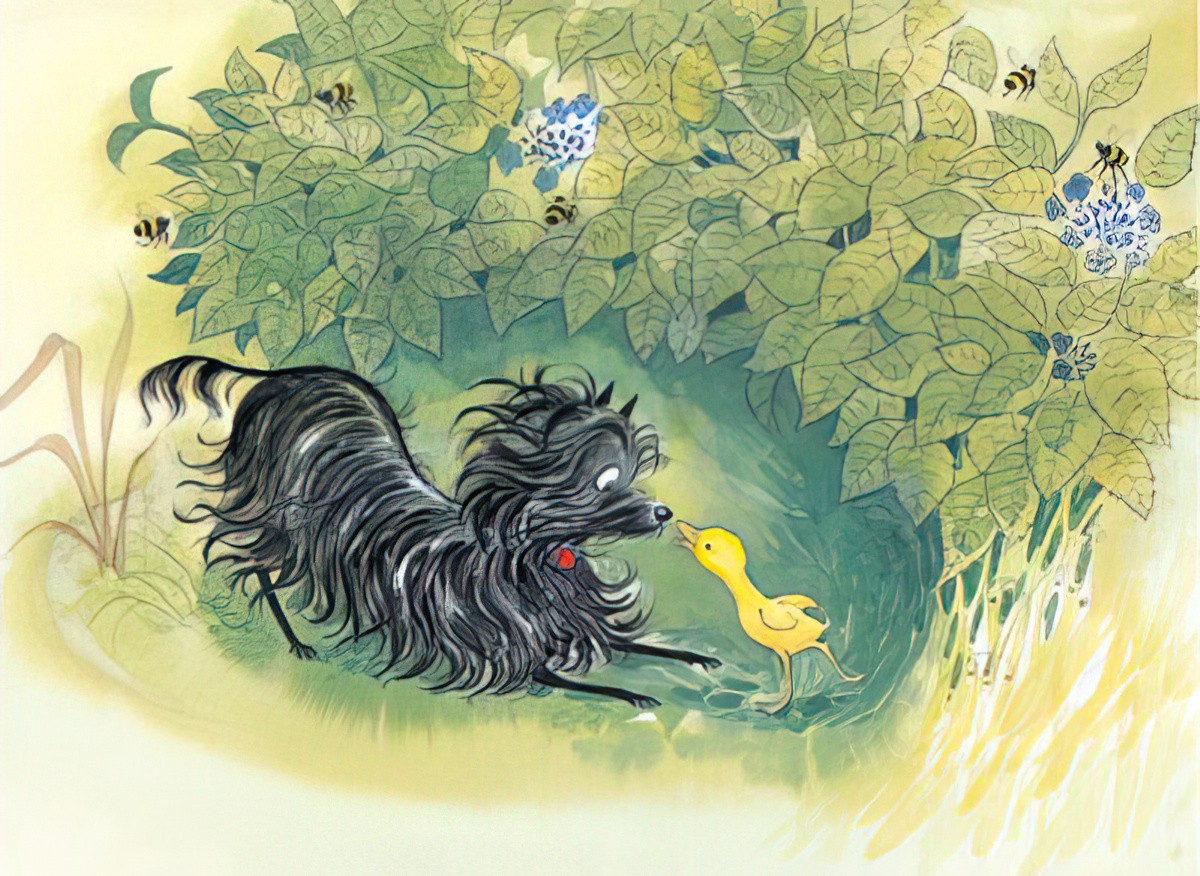
PLAN
Zachary simply won’t leave Hairy alone. So Hairy moves from place to place, hoping to find a new place to nap in peace.
The duckling counterattacks by sniffing him out every single time. (Can ducklings sniff someone out?)
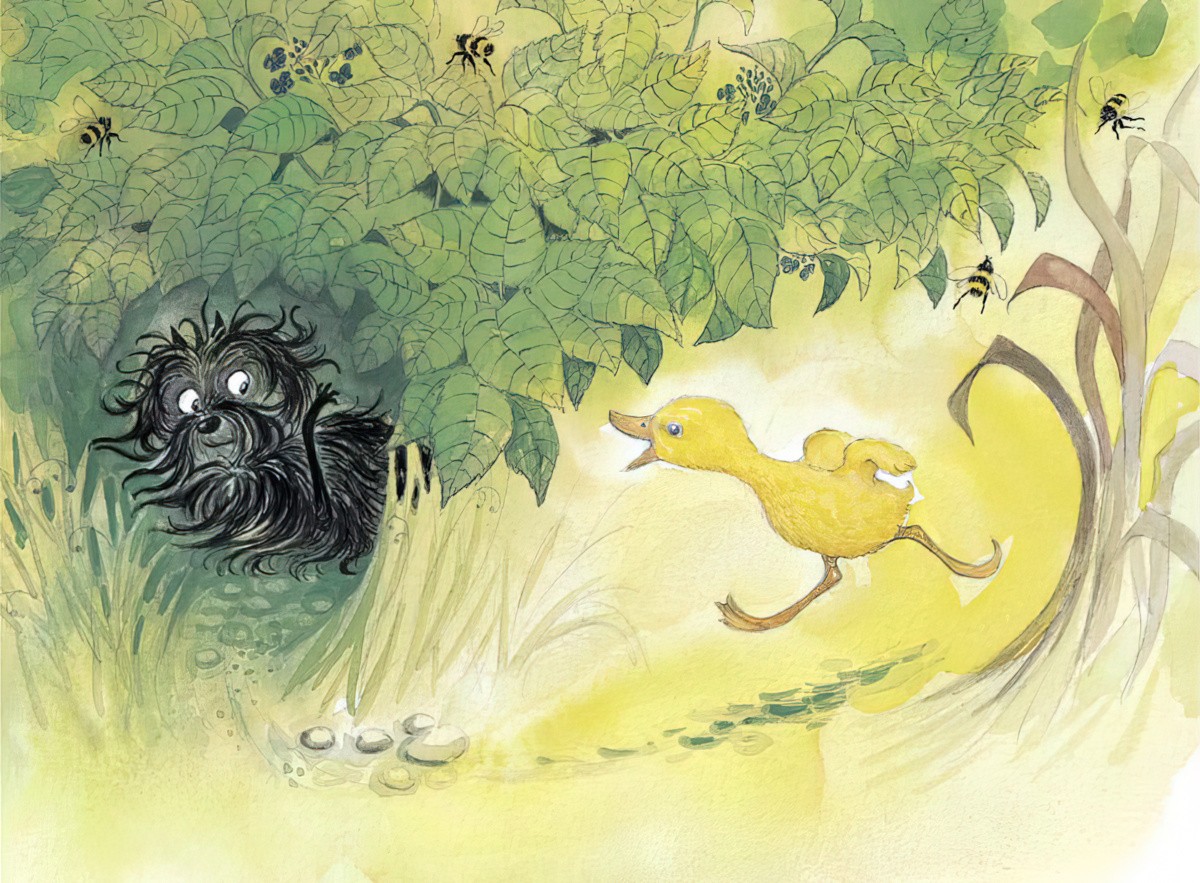
THE BIG STRUGGLE
Hairy accidentally runs into the pond. We know this is accidental because Lynley Dodd depicts him with his eyes closed.
He swims around in the pond, unable to get out. Frankly, I find this harrowing. I found a dead rat in a tub of rainwater recently and I hate to think how long the poor rat was swimming around in that tub before drowning to death, unable to get out.
ANAGNORISIS
Hairy realises its fruitless to keep away from Zachary because this duckling is relentless.
Also, he may have had a change of heart. Since Zachary technically saved his life, maybe the baby duck comes in useful.
Sometimes, in other stories, this trope goes badly wrong and readers end up with a Rudolph Story, meaning a character is accepted by the group only after proving themself useful. This is problematic because the underlying message is this: We must be useful before we are acceptable.
It helps that in this story there is no ‘group’, only Hairy and one duckling. That whole complicated bully-culture dynamic is avoided.
The plot line also works here because it’s not even clear that Hairy has accepted Zachary. Mainly, this plot is saved from getting Rudolphed because Zachary does not care one whit about whether he is acceptable or not. He can be coded as a comically self-centred character. It also helps that there is nothing about Zachary that marks him out as different from any other run-of-the-mill duckling, which avoids ableist tropes. Zachary is your archetypal duckling.
NEW SITUATION
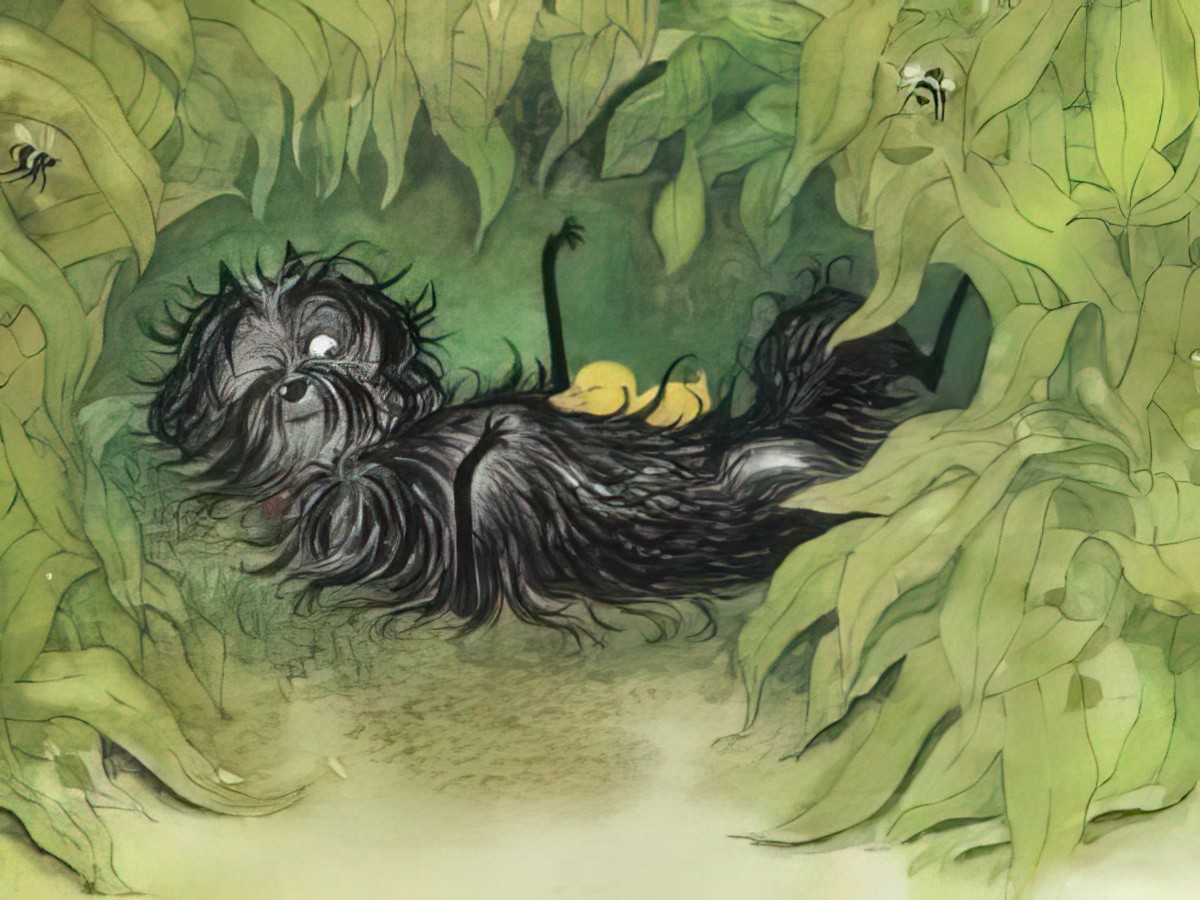

RESONANCE
Stories about animals saving other animals do not live in the realm of fiction. When caught on camera, they frequently go viral:
